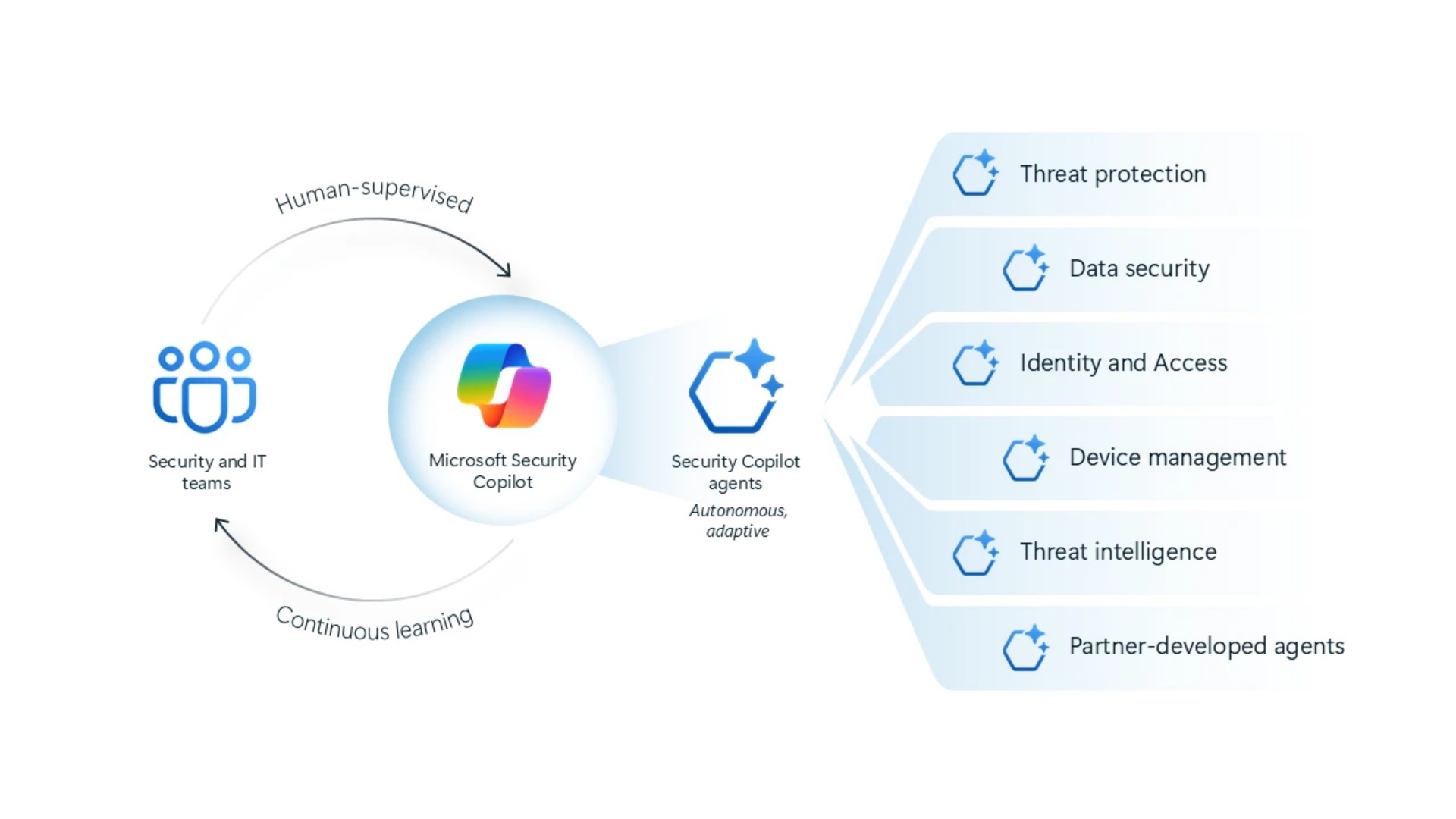Microsoft Enhances Security Copilot with Six New Features

Microsoft Introduces New AI Agents for Enhanced Security
Overview of New AI Agents
Microsoft has recently announced the introduction of six new artificial intelligence agents as part of its Security Copilot solution. These agents aim to bolster cybersecurity measures and improve the company’s existing offerings, which were first revealed to the public a year ago. Additionally, Microsoft is set to release five more AI agents developed in collaboration with its partners, providing significant enhancements to the cybersecurity landscape.
The Need for Advanced Cybersecurity Solutions
The growing threat of cyberattacks has made it clear that organizations need robust mechanisms to defend their digital assets. Microsoft reports that its Threat Intelligence system processes an astonishing 84 trillion signals daily, a figure that highlights the extensive scale of today’s cyber threats. Alarmingly, the industry faces around 7,000 password attacks every second. Given this reality, the introduction of AI agents is seen as a critical strategy to help organizations scale up their cybersecurity defenses effectively.
Features of Microsoft’s New AI Agents
Microsoft’s six newly announced AI agents are designed specifically for security functions within organizations. The aim is to empower security teams by allowing them to automate high-volume tasks, streamlining processes and improving overall efficiency. These agents will integrate seamlessly with existing Microsoft security solutions, ensuring that organizations can respond to threats in real time. Here are the specific functions that the agents can perform:
1. Phishing Triage Agent in Microsoft Defender
- This agent analyses phishing alerts to accurately distinguish between genuine cyber threats and false alarms.
- It provides clear explanations for its assessments and fine-tunes detection capabilities based on administrator feedback.
2. Alert Triage Agents in Microsoft Purview
- Focused on data loss prevention and insider risk alerts, this agent prioritizes critical incidents.
- It continuously enhances its accuracy using information from administrator feedback.
3. Conditional Access Optimization Agent in Microsoft Entra
- This agent observes new users or applications not covered by existing security policies.
- It identifies necessary updates to mitigate security gaps and suggests quick fixes that can be implemented with just one click.
4. Vulnerability Remediation Agent in Microsoft Intune
- Tasked with monitoring and prioritizing vulnerabilities, this agent also oversees remediation tasks related to application and policy configurations.
- It accelerates the application of Windows OS patches, contingent on administrator approval.
5. Threat Intelligence Briefing Agent in Security Copilot
- This agent automatically curates timely and relevant threat intelligence tailored to an organization’s unique characteristics and risk exposure.
Partner Collaboration and Expansion Plans
In addition to the six Microsoft-built agents, the company plans to roll out five additional agents created by its partners. The collaboration aims to expand the capabilities of Security Copilot even further, offering organizations a broader range of tools to combat cybersecurity challenges.
These agents are currently available for preview and are set to be fully accessible in April 2025. Microsoft emphasizes that these advancements are part of a larger effort to implement scalable cybersecurity solutions that align with their Zero Trust framework, which is focused on ensuring that each user, device, and application is verified regardless of its location.
For those wanting more information about Microsoft’s new Security Copilot agents and the partner-built offerings, detailed resources are available online for further exploration.






